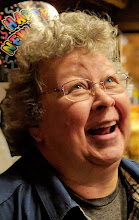Washington Census, Naturalization records, and Social Security Death Index:
http://www.secstate.wa.gov/history/search.aspx
Census Records: 1847 Lewis County Heads of Family, 1851 Lewis County, 1854 & 1857 Pierce County, 1857 & 1871 Clallam County.
1857 King, Kitsap, Lewis, Mason, & Wahkiakum Counties.
1871 Cowlitz, Grays Harbor, Island, Jefferson, Kitsap, Klickitat, Lewis, Mason, Skamania, Snohomish, Stevens, Thurston, Whatcom, & Yakima Counties.
1875 & 1877 Jefferson County.
1878 Jefferson & Stevens County.
1879 Grays Harbor, Mason, & Pierce Counties.
1880 Mason County
1883 Clallam, Clark, Cowlitz, Island, Klickitat, & Yakima Counties.
1885 Asotin, Cowlitz, Douglas, Franklin, Grays Harbor, Kittitas, Skagit, Stevens, Thurston, Wahkiakum, Walla Walla County (Partial), Whatcom, & Yakima Counties.
1887 Asotin, Cowlitz, Douglas, Garfield, Island, Kittitas, San Juan, Skagit, Skamania, Spokane County (Partial), Stevens, & Yakima Counties.
1889 Clallam, Island, & Skagit Counties.
1892 Columbia, Douglas, Island, & Walla Walla County (Partial).
1860 Federal Census (Partial), 1910 Federal Census, 1910 Federal Census Clear Lake Precinct
Naturalization Records: Adams, Benton, Chelan, Columbia, Douglas, Ferry, Franklin, Grant, Island, Kitsap, Kittitas, Klickitat, Lincoln, Mason, Okanogan, Pacific, San Juan, Skamania, Spokane, Wahkiakum, Walla Walla, Whatcom and Yakima Counties. Supreme Court Register.
Additional/Miscellaneous Records: Brinnon Cemetery;
McNeil Island Area Burial Removal Permits 1917-1938, Burial Transit Permits 1944-1961, Register of Births 1914-1923, Register of Deaths 1914-1935;
McNeil Island Death Records 1940-1943, Disinterment Permits 1937-1938.
Oaths of Office, Physicians, Seatco Prison at Bucoda, Soldier's Home & Colony.
Spokane County Birth Index 1890-1906, Marriage Index 1880-1903, World War I Soldiers Veterans Home.
Walla Walla City Register of Births 1907, Register of Deaths 1907
Walla Walla County Death Returns 1903-1906
Walla Walla Penitentiary, World War I Serviceman Cards (Aaberg - Baukol only
Social Security Death Index:
http://www.secstate.wa.gov/history/search_ssdiwa.aspx
Social Security card issued in Washington State, last residence in Washington state, or last benefit payment mailed to an address in Washington State just prior to death. The database contains approximately 1,434,000 records (as of July 2004).
Call it a clan, call it a network, call it a tribe, call it a family. Whatever you call it, whoever you are, you need one. - Jane Howard, 1935-1996, US journalist, writer




